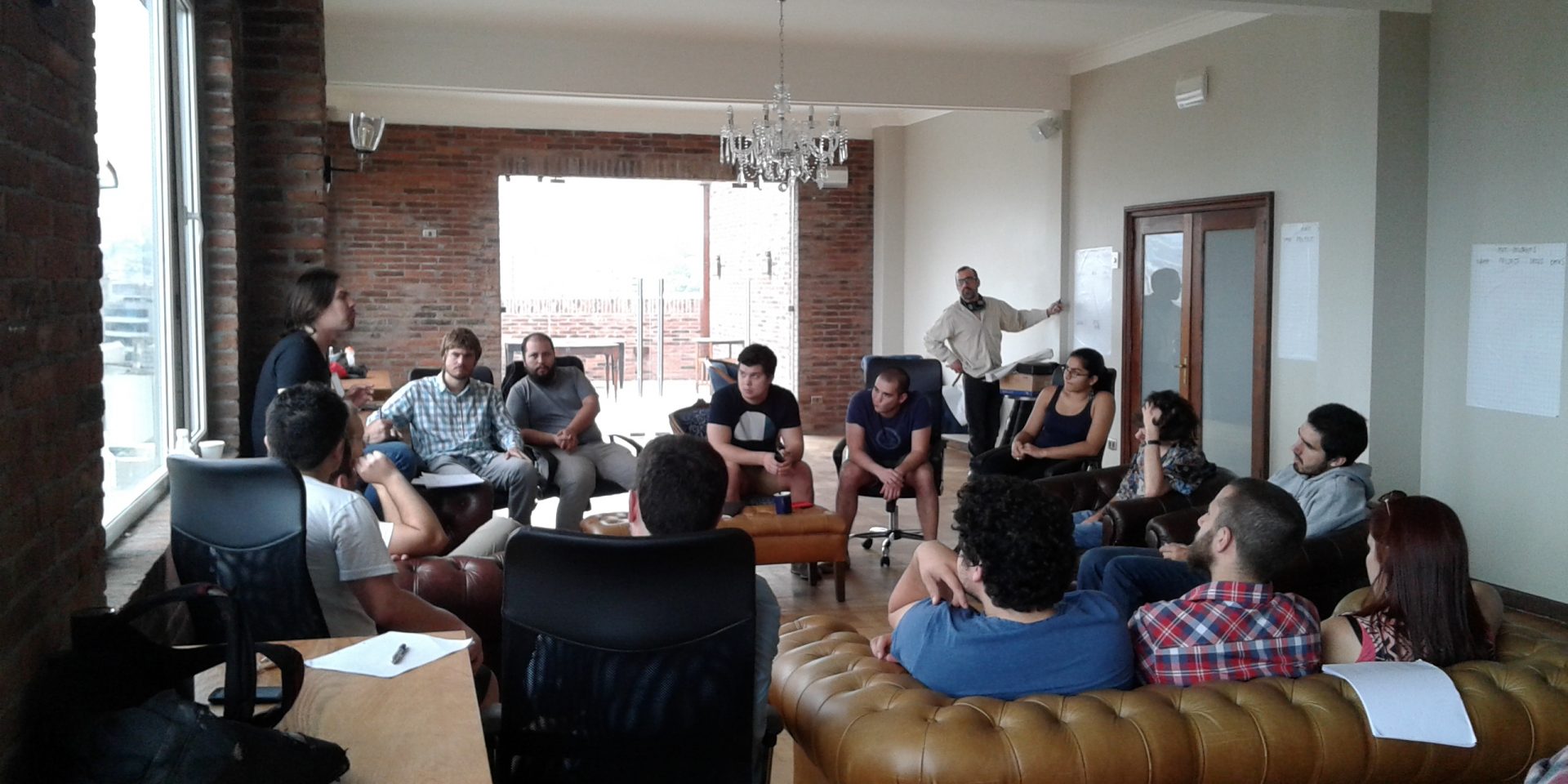

Universidad del Desarrollo’s Doctoral Program in Social Complexity Sciences is currently accepting applications for its second generation.
This program was developed by the Research Center in Social Complexity (CICS in spanish), the Faculty of Government’s Center for Public Policy (CPP in Spanish), and in collaboration with the Faculty of Engineering and Faculty of Medicine of Universidad del Desarrollo (UDD).
In order to apply, candidates must fill out the following:
ADMISSIONS
Overview
Full scholarship per student covers the complete cost of the program (tuition and registration fees), a monthly stipend of 1 million Chilean pesos and a food scholarship, for the duration of the doctoral program.
Application deadlines:
[expand title=”READ MORE”]
APPLICATION REQUIREMENTS & PROCESS
Applicants to the Doctoral program must have completed an Undergraduate degree in a field related to Social Sciences or Natural and Exact Sciences, as a minimum requirement for admission.
Candidates who meet the requirements for the program, determined during the pre-selection period, will the be interviewed by a faculty member (in person or via Skype, depending on the applicants’ geographical location).
PROGRAM INFORMATION
The doctoral program in Social Complexity Sciences is divided into two major phases: an academic period and a research period, for a duration of four semesters each. During the first three months of the academic period, students will learn about interdisciplinary concepts in the social sciences and will also learn to use analytical methodologies, for example, for modeling social behavior through empirical analysis. During the fourth semester, students will expand their knowledge on research methods related to the area in which they will conduct their thesis project. After these first four semesters of the program, students will be evaluated on their thesis project proposal and will take the oral candidacy exam. Once they have approved both evaluations, students will officially earn the title of PhD candidate. During the next phase of the program; the research period, students will have to carry out their proposed research for their thesis.
ENABLING STUDENTS FOR RESEARCHING TOPICS IN ANALYTICAL SOCIAL SCIENCES
Empirical Analysis and Modelling
These two models are divided into two categories: mathematical modeling of social behavior and empirical analysis. In studying mathematical modeling, students will acquire a set of tools in order to achieve their objectives, such as game theory, network analysis and computer simulations. With this set of tools, students will be expected to construct proper models for individual decision making processes and for the emerging social phenomena that is associated to decision making. At the same time, students will learn a set of empirical analysis techniques, such as econometrics, data mining, spatial analysis and experimental methods.
Behavior Fundamental and Institutional Processes
Along with learning about analytical methodologies, students will also be instructed in two interdisciplinary fields, related to one another. The first is on the fundamentals of human behavior, which students will learn about by studying economics, anthropology, evolutionary psychology and social neuroscience. The second field of interest focuses on institutional and social processes, therefore students will study sociology, political science and economics.
TRANSITION TOWARDS RESEARCH
At the end of the third semester of the program, students will take their candidacy exam which will cover research methodologies and a specific study topic. The methodology part of the exam will be on mathematical modeling and empirical analysis; and the portion of the exam on a study topic will be on the fundamentals of human behavior or on institutional and social dynamics.
During the fourth semester of the program, students will focus on reading the latest and most groundbreaking studies published on the main research area that is associated to the doctoral program. During this semester, students will develop a research project, which if approved, will be the basis to their doctoral thesis during the following four semesters.
Students may enroll in research units that precede their thesis topic proposal, as soon as they begin the doctoral program. Thus, incentivizing and facilitating their involvement in the research area they know they will conduct their thesis projects on.
Research seminars, conducted by doctoral students may be developed on the following topics:
Simultaneous to the development of their research seminars, and according to the specific research topics covered, students will further learn conceptual and methodological aspects of the following subjects:
Field Courses:
FURTHER INFORMATION
For further information on the program please contact:
Massiel Guerra G., Executive Director of the Doctoral Program in Social Complexity Sciences (DCCS in spanish). [email protected]
Application documents must be sent to:
Avenida La Plaza, 680, Las Condes, Santiago de Chile.
Postgraduate Building, first Floor (Edificio de Postgrados, primer piso), Doctoral Program in Social Complexity Sciences (DCCS in spanish).
[/expand]